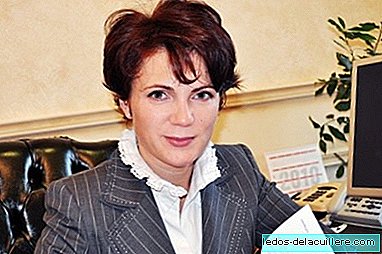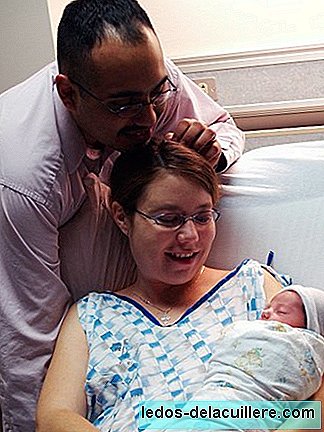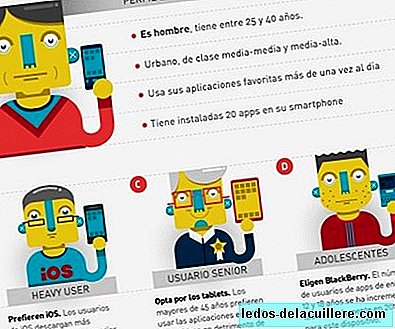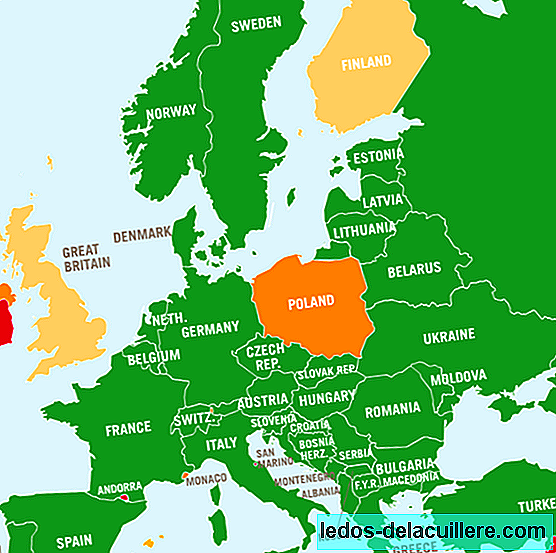
Alina Radchenko She is the founder and leader of the international initiative Generation 2030: tomorrow will be today. It is an initiative created to lead key strategies of global development such as demography, migration, education, health, the environment, social progress and the norms of business activity and which focuses on the needs and interests of today's children.
Ms. Radchenko is a public activist in Russia and since 2007, she has worked as Head of the Secretariat of the Public Chamber of the Russian Federation, the leading civil society organization in the country. He is also Chairman of the Board of My Generation, Foundation to support youth charitable initiatives. Over the years, she has written and co-authored several research books and manuals on youth and childhood issues, as well as on the city's environment and ecosystems. In the period 2003-2007 Ms. Radchenko held high positions in the Administration of the President of the Russian Federation, as well as in the Government Office of the Russian Federation. Before joining the government, she worked in the private sector, as financial director and commercial director of some of the largest Russian companies. Ms. Radchenko has a PhD in political science, has a degree in law and economics. He is married and has a daughter.
What is and what is the goal of Generation 2030
Generation 2030 is a public initiative, which aims to "put children first" and make children's interests key issues for the public policy agenda. We also aim to instill in parents and adults in general respect for their unique talents and way of thinking. We try to do it through educational activities, through the collection, exchange and promotion of best practices that exist in countries around the world.
The concept originated in Russia in 2008. We founded an NGO and a public childhood program that has been implemented in different projects in Russia for three years. Obviously, the merit of the changes we are seeing in Russia regarding childhood is not only ours, but the truth is that we are getting considerable results: more and more parents are willing to change the way they interact with their children, and The State has moved the issue of children to the center of the public agenda, creating the figure of the Ombudsman for Children's Rights and including key issues for children in the guidelines of the Presidency of the Nation.
We now intend to take our initiative to an international level, possibly by creating an international organization. Our goal is a challenge that requires dialogue by many stakeholders and cannot be addressed only from a national point of view.
What is "follow the baby"
Every child is a person in every sense of the word. His talents, opinions, abilities and aspirations are totally unique. Therefore, the conditions conducive to bringing to light this unique potential and individuality of each one must be created. Parents and adults should not give children standard guidelines to follow in their lives, they should not try to apply the same size / size for everyone. On the contrary, parents should listen and observe their children, and provide support for them to develop their unique features. Policy makers should also take children into account in the development of their state policies and in the evaluation of their impact, something that is not currently done.
What other initiatives exist in the world and how they differ from Generation 2030
We are happy because we are not alone in this way of thinking. For example, Daniel Kropf and his Learning for Wellness program It puts the child at the center of the education system and aims to move away from a standardized system from top to bottom, which is what prevails today.
We differentiate ourselves in the holistic approach. We have identified several areas that have to be addressed in a joint and complex way: education, health, parental care, and the city's ecosystems, among others. We firmly believe that only a systemic approach can give positive results.
What characteristics does the Russian system have and how it is being applied to other countries
Our approach is based on a work plan that was created following a prospective investigation that was conducted about three years ago. We have identified inflection points that are the moments in time for which certain policy changes must be applied to ensure positive scenarios for a particular area, for example, immigration policy, educational reform, etc. And we carry out the research specifically for Russia, but I am sure that many of the results of this research are applicable and useful for many other countries around the world.
What will be the global drivers of change in the coming years and how will they affect the education of children?
It is obvious that technological advances, environmental pressures and demographic change are key factors. Its impact is overwhelming and universal. The changes that are taking place in the lives of people and nations are unpredictable and rapid. Now and even more in the future, people will live several lives in one life with changes in professions, residence and environment. The school as an institution no longer has a monopoly on the provision of education, other systems and scenarios will assume greater roles: the community, the Internet, television, etc. To prepare for the challenges of the future, children need to be motivated to constantly study. And the traditional "classes and disciplines" of the education system must change, to make a particular child the center of their own system. We must influence the curriculum, use more current technologies and interact with other educational ecosystems.
To be competitive in the future, children must develop more competencies instead of "being files loaded with information."
What are the main obstacles to develop the initiative
Stereotypes are probably the biggest obstacle. However, there are several different ways of treating children in this multi-layered system that involves education, health, social welfare etc.
What are the main challenges facing current educational institutions
The current system, in general terms, is more than three centuries old. It is no longer appropriate for the world we live in. It is based on the idea of "the same measure for all". In this system, the unique abilities of children are not usually recognized or exploited, but rather is oriented towards the quantity and accuracy of the data "stored" in the brains of the students.
How do you think students' educational success should be evaluated?
Ultimately, success is defined by the level of competitiveness of individuals and nations. Human capital, not military force, or geography, or natural resources, is the engine and definition of a nation's competitiveness. In 2030, the importance of human capital will be overwhelming. So if schools can offer the skills, motivation to learn, understanding and flexibility necessary to face the world around us, in addition to the appreciation of one's own culture and respect for others, this would be success.
How the initiative manages the balance between the development of children's creativity and the development of skills and knowledge
There can be no defined percentages. Again, each child is different: some are creators and individualists, some prefer execution and team work. A teacher must obviously give some necessary basic concepts by way of information, but in each case the story will be different.
What is Generación 2030's vision of the use of technology in education?
Technology and new applications are great, unfortunately, they are not used enough for education in developing countries. However, at the same time, technology cannot replace personal interaction between a teacher and a student. Technology can help to obtain information on the different disciplines, particularly in the area of professional skills development, but they cannot replace human beings, the environment, nature, plants and animals. The environment and the environment is very important for the development of children and about this you can not learn only through electronic devices.
We thank Alina Radchenko your participation in the interview in Peques y Más. It is very interesting to know the Generation 2030 initiative We remind you that you want to make yourself known in Europe and in Spain to encourage the exchange of good practices and knowledge. Education is a challenge although it seems to me that at the present time a profound revolution is necessary. It seems to me that Generation 2030 has many points in common with many other initiatives that already work in Spain, and that we have recently known, that offer a vision of education that places the student at the center of the whole process and from there evolves, in a personalized way, with a rhythm and a personal style, from primary school to the working world.












